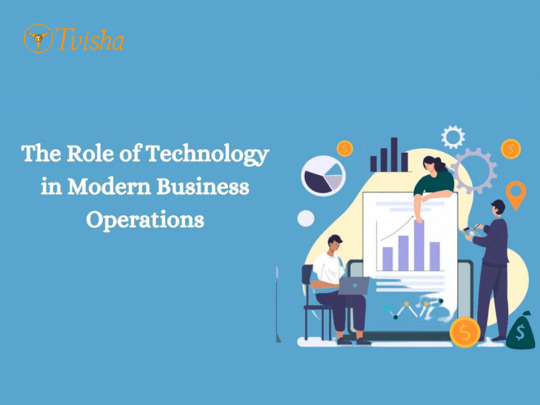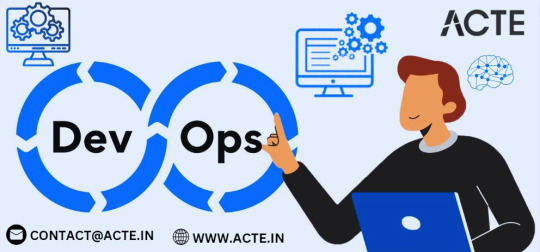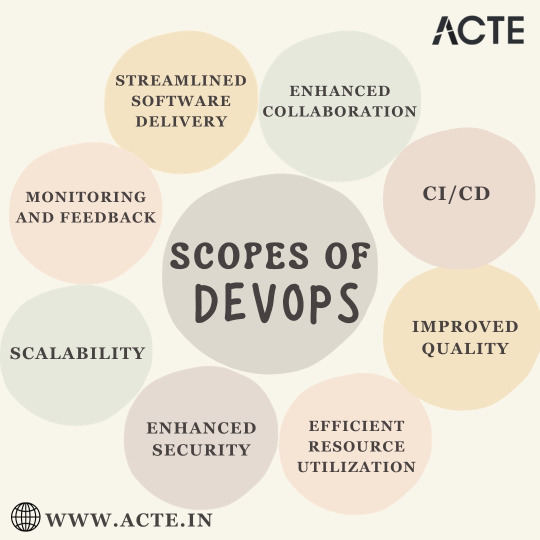#agile performance testing methodology
Explore tagged Tumblr posts
Text

Embark on a global bug hunt with our SDET team, leveraging cloud-based mobile testing to ensure your app achieves flawless performance across all devices and networks. With cutting-edge tools and a meticulous approach, we identify and eliminate bugs before they impact your users. https://rb.gy/jfueow #SDET #BugHunt #CloudTesting #MobileAppQuality #FlawlessPerformance SDET Tech Pvt. Ltd.
#Software Testing Companies in India#Software Testing Services in India#Test Automation Development Services#Test Automation Services#Performance testing services#Load testing services#Performance and Load Testing Services#Software Performance Testing Services#Functional Testing Services#Globalization Testing services#Globalization Testing Company#Accessibility testing services
Agile Testing Services#Mobile Testing Services#Mobile Apps Testing Services#ecommerce performance testing#ecommerce load testing#load and performance testing services#performance testing solutions#product performance testing#application performance testing services#software testing startups#benefits of load testing#agile performance testing methodology#agile testing solutions#mobile testing challenges#cloud based mobile testing#automated mobile testing#performance engineering & testing services#performance testing company#performance testing company in usa
0 notes
Text
Game-Changing Enterprise Software Strategies to Elevate Your Business
What if your enterprise software did more than just handle tasks—what if it actually helped your business grow? Imagine a solution that adapts to your needs, tackles challenges before they arise, and makes work easier and more efficient. It’s about smarter technology that truly supports you every step of the way.
Smart Strategies for Building Intelligent Enterprise Software Development

With a structured yet adaptable Software Development Life Cycle (SDLC), we ensure that our solutions aren’t just built for today but are ready for the future. Here’s how we make it happen:
1. Planning with a Vision
Every great innovation starts with a solid plan. We dive deep into your business objectives, assess feasibility, and map out the perfect strategy to create software that delivers measurable impact.
2. Unlocking the Right Requirements
Why settle for a one-size-fits-all approach? Through collaborative workshops and methodologies like MoSCoW, we identify and prioritize the most critical features to ensure maximum business value. We don’t just build software; we build competitive advantages.
3. A Roadmap for Success
A clear plan leads to seamless execution. Our detailed documentation acts as a blueprint, ensuring everyone is aligned and potential roadblocks are identified before they become obstacles.
4. Agile Sprint-Based Execution
Flexibility is key to innovation. Our sprint-based development approach ensures rapid iterations, continuous improvement, and a dynamic response to evolving business needs.
Focused Backlog Creation: We prioritize features that drive value.
Sprint Planning & Execution: Agile development ensures efficiency.
Daily Standups & Fast Problem-Solving: Challenges are tackled in real time.
Testing & Refinements: Every iteration is validated for top performance.
Scalability & Security First: We build solutions that grow with you.
Continuous Review & Stakeholder Feedback: Your business needs guide every step.
5. No Compromise on Quality
A great product is one that works flawlessly. From performance and security to usability, we ensure every feature meets the highest standards before it reaches you.
6. Beyond Development – Continuous Support & Maintenance
Technology never stands still, and neither do we. Our ongoing support ensures that your software remains secure, efficient, and adaptable to market changes.
Why AQe Digital?
Tailored Solutions: Designed to fit your unique business landscape.
Agile & Scalable: Ready for today, built for tomorrow.
Security-Driven: Protecting your data is our top priority.
Long-Term Partnership: We’re with you beyond deployment.
Industry Experts: Two decades of driving digital transformation.
Let’s Build the Future Together
We’re not just building software—we’re crafting solutions that spark real change, fuel business growth, and make a meaningful impact. Curious to see how innovation can transform your business? Read the full blog and explore the possibilities.
Transforming ideas into powerful solutions—let’s make it happen!
2 notes
·
View notes
Text
Automated Testing vs. Manual Testing: Which One is Right for Your Project?

Achieving high-quality, reliable software stands as a fundamental requirement in software development. Successful testing functions as an essential tool to discover faults and build performance capabilities that create better user experience outcomes. Two main testing methods dominate the field: automated testing and manual testing. The process of quality software assurance uses different testing approaches that demonstrate their own advantages as well as weaknesses according to specific project requirements and scenarios. We will explore the specifics to determine which testing process works best for your system development efforts.
1. What Is Manual Testing?

Manual testing involves a human tester manually executing test cases without using automation tools. Key Characteristics:
The methodology focuses its efforts on user interface together with usability and experience testing.
Human-centered applications where selection requires discretion include ad hoc testing and enumerative testing as well as examinations that need human evaluation.
Human performers are required during this approach; thus, it demands substantial time.
2. What Is Automated Testing?

Software performing automated testing executes test cases through workflows and helpers. Key Characteristics:
Efficient for repetitive and regression testing.
Users must spend money on tools along with developing custom scripts for testing.
Reduces human error.
3. Advantages of Manual Testing

Human Intuition: Software testing professionals can detect kernels through their human cognitive ability that automated tools cannot match. The observation and evaluation of visual elements runs more efficiently through human operatives instead of advanced tools.
Flexibility: This method suits exploratory testing specifically because there are no pre-determined scripts available.
Low Initial Investment: Running this approach does not need tool purchases or applications to develop automation frameworks.
Adaptable for UI/UX Testing: Running this approach does not need tool purchases or applications to develop automation frameworks.
4. Advantages of Automated Testing

Speed: Executes repetitive tests much faster than humans.
Scalability: The system proves most effective for extensive projects that need constant system updates.
Accuracy: When performing recurring actions, automated systems minimize the chances of human mistakes.
Cost-Efficient in the Long Run: Once established and implemented, the system demands costly investments but ensures continuous development expenses decrease over time.
Better for CI/CD Pipelines: Such testing technology connects various development pipelines that support agile and DevOps methodologies.
5. Disadvantages of Manual Testing

Time-Consuming: The manual performance of repeated tests leads to delayed completion of projects.
Error-Prone: Large applications contain tiny bugs that human testers commonly fail to detect.
Not Ideal for Scalability: The process of increasing manual testing needs additional testers to avoid cost escalations.
6. Disadvantages of Automated Testing

Initial Costs: Organizations must provide high financial resources to procure testing tools together with developing programming constructs.
Limited to Pre-Defined Scenarios: These testing approaches work poorly for handling exploratory or ad hoc testing.
Requires Maintenance: Test scripts need frequent updates when application changes occur.
Not Suitable for UI/UX Testing: Struggles with subjective user experience evaluations.
7. When to Use Manual Testing

Small Projects: The testing method proves beneficial at a low cost for small applications and provides quick assessments.
Exploratory Testing: Testing this approach benefits projects whose scripts have not been defined yet or need evaluation for newly added features.
Visual and Usability Testing: Performing assessments on interface components together with design features.
8. When to Use Automated Testing

Large Projects: Handles scalability for projects with frequent updates.
Regression Testing: Program testing becomes more efficient through automation since automated assessments perform multiple tests following each update process.
Performance Testing: The system performs efficient capabilities to conduct load testing and stress testing.
Continuous Development Environments: Agile progression and DevOps implementations need automation as a core requirement.
READ MORE- https://www.precisio.tech/automated-testing-vs-manual-testing-which-one-is-right-for-your-project/
2 notes
·
View notes
Text
Vietnam software outsourcing: What every tech leader needs to know in 2025
In the dynamic landscape of global business, outsourcing has emerged as a powerful solution, and Vietnam stands out as a rising star in this arena. This comprehensive guide about Vietnam software outsourcing from PowerGate Software is designed for a diverse audience, including SMBs, rapidly scaling startups, and established enterprises across various industries. Whether you’re considering your first outsourcing venture or looking to diversify your current offshore portfolio, this guide will equip you with the essential knowledge to make informed decisions.
You’ll learn about the core benefits of IT outsourcing to Vietnam, how it compares to other leading destinations, popular services to consider, critical cost factors, and a step-by-step roadmap for successful engagement.
1. Core benefits of software outsourcing to Vietnam
Vietnam’s growing appeal as an outsourcing hub stems from several key advantages:
1.1. Significant cost savings
One of the most immediate and impactful benefits of IT outsourcing to Vietnam is the significant cost reduction. You’ll benefit from substantially lower labor costs compared to Western countries. For instance, while the average software developer salary in the US can exceed $123,000 annually, in Vietnam, the average annual salary for a software developer is around $80,000.

Source: Onextdigital
1.2. Skilled and growing tech talent pool
Vietnam boasts a burgeoning pool of tech talent, driven by demographics and a strong educational focus. Access a young (*), educated, and tech-savvy workforce known for high literacy rates and a strong work ethic. There’s an increasing focus on STEM education and specialized skills in AI, Blockchain, and Cybersecurity, ensuring a future-ready talent pool. English proficiency is also on the rise within the tech sector.
(*) In 2025, the working-age population (15-64 years) in Vietnam accounts for 69.3% of the total population
1.3. Scalability & flexibility
IT outsourcing to Vietnam offers unparalleled scalability and flexibility, which are crucial for dynamic business needs.
Rapid team expansion or reduction: Companies can quickly scale their teams up or down based on project demands, without the complexities and costs associated with in-house hiring and layoffs.
Reduced administrative burden of in-house hiring: Vietnamese Outsourcing partners handle all aspects of recruitment, onboarding, payroll, and HR, freeing up your internal resources to focus on core business activities.
1.4. Innovation & quality
Vietnamese software outsourcing providers are increasingly recognized for cost-effectiveness and their commitment to innovation and quality.
Growing expertise in emerging technologies: As mentioned, the talent pool rapidly develops expertise in cutting-edge technologies, enabling businesses to leverage these advancements for their projects.
Commitment to quality and international standards: Many Vietnamese companies adhere to international standards (e.g., ISO, CMMI) and employ robust project management methodologies (e.g., Agile, Scrum) to ensure high-quality deliverables.
2. Popular IT services outsourced to Vietnam
Vietnam’s software outsourcing capabilities span a wide range of services, catering to diverse business needs.
Software Development: This includes a broad spectrum of services, from web development (frontend and backend) and mobile app development (iOS, Android, cross-platform) to complex enterprise applications.
Web Design & Development: Creating visually appealing and highly functional websites.
Quality Assurance (QA) & Testing: Ensuring software quality through manual and automated testing, performance testing, security testing, etc.
IT Infrastructure & Support: Services like DevOps implementation, Cloud Services (migration, management), and general IT support.
Emerging Technologies: Growing expertise in areas like AI/ML (Artificial Intelligence/Machine Learning) for intelligent automation and data analysis, Blockchain for secure and transparent transactions, IoT (Internet of Things) for connected devices, and Data Science for insights and predictive analytics.
Cybersecurity Services: Protecting digital assets and infrastructure from threats.
1 note
·
View note
Text
Optimize Your ERP with Strategic SAP Landscape Transformation Solutions

In today’s fast-evolving business landscape, organizations must adapt to stay competitive. SAP S/4HANA offers a powerful platform to drive efficiency, innovation, and growth. However, transitioning to this next-generation ERP system requires strategic planning and expertise. CBS Consulting, a trusted leader in SAP Landscape Transformation, specializes in S4HANA Selective Data Migration and S4HANA Migration Services, empowering businesses to achieve Digital Transformation S4HANA through RISE with SAP. This article explores how CBS Consulting can guide your organization to a seamless and value-driven S/4HANA migration.
Why SAP S/4HANA is Essential for Digital Transformation
SAP S/4HANA is more than an ERP upgrade—it’s a catalyst for Digital Transformation S4HANA. Built on the in-memory SAP HANA database, it delivers real-time insights, streamlined processes, and a modern user experience through SAP Fiori. Unlike SAP ECC, S/4HANA supports cloud, on-premise, and hybrid deployments, offering scalability and flexibility. With SAP’s 2027 deadline for ECC support looming, businesses must act now to avoid disruptions and leverage S/4HANA’s advanced capabilities, such as embedded analytics and seamless integration with CRM and SCM systems.
The Power of SAP Landscape Transformation
SAP Landscape Transformation is critical for organizations with complex IT environments. It involves consolidating, harmonizing, and optimizing systems to align with business goals. CBS Consulting, a founding member of SAP’s S/4HANA Selective Data Transition Engagement, uses proven methodologies to simplify your IT landscape. By eliminating redundancies and outdated data, CBS ensures a lean, future-ready system that maximizes efficiency and minimizes costs. This approach reduces project timelines by up to 50%, enabling faster adoption of S/4HANA innovations.
S4HANA Selective Data Migration: A Strategic Approach
S4HANA Selective Data Migration offers a balanced alternative to greenfield (new implementation) and brownfield (system conversion) approaches. This hybrid method, also known as the Bluefield approach, allows businesses to selectively migrate relevant data and processes while redesigning others to align with S/4HANA’s capabilities. CBS Consulting leverages proprietary tools like the CBS Enterprise Transformer to ensure near-zero downtime and high data quality. For example, you can retain critical historical data, such as five years of financial records, while leaving obsolete data behind, ensuring a consistent document flow without business disruption.
This approach is ideal for organizations with multiple ERP systems or those undergoing mergers and acquisitions. CBS Consulting’s expertise ensures that only business-critical data is migrated, reducing storage costs and enhancing system performance. By combining selective process redesign with targeted data transformation, CBS delivers a tailored migration that aligns with your strategic objectives.
Comprehensive S4HANA Migration Services
CBS Consulting’s S4HANA Migration Services provide end-to-end support for your transformation journey. From initial assessment to post-go-live optimization, their eight-step methodology ensures success:
Discovery Phase: Analyze your existing IT landscape to identify key data and processes.
Migration Assessment: Define migration objects and harmonization scope.
System Installation: Set up S/4HANA with customized configurations.
Data Migration: Use SAP’s Migration Cockpit and CBS tools to cleanse and transfer data.
Testing: Conduct rigorous unit, integration, and user acceptance testing.
Process Re-implementation: Redesign processes using S/4HANA best practices.
Training and Change Management: Equip users with tailored training for smooth adoption.
Go-Live Support: Execute a seamless cutover with minimal downtime.
With over 5,000 successful go-lives, CBS Consulting ensures a secure, agile, and cost-effective transition to S/4HANA, whether on-premise or in the cloud.
RISE with SAP: Accelerating Your Cloud Journey
RISE with SAP simplifies the move to S/4HANA Private Cloud, offering a subscription-based model that integrates hosting, services, and innovation. CBS Consulting enhances this offering with pre-packaged migration scenarios, enabling businesses to leverage cloud benefits like scalability and reduced infrastructure costs. For instance, CBS successfully transformed SPS Companies Inc.’s ERP system to S/4HANA Private Cloud, harmonizing financial structures and implementing Fiori apps for enhanced usability. This cloud-first approach ensures flexibility and future-proofs your IT landscape.
Why Choose CBS Consulting?
As a global leader in SAP transformations, CBS Consulting combines technical expertise with deep business understanding. Their membership in SAP’s Selective Data Transition Engagement ensures adherence to international standards, delivering high-quality, low-risk migrations. Whether you’re consolidating systems, migrating data, or embracing RISE with SAP, CBS tailors solutions to your unique needs, driving measurable value and competitive advantage.
Conclusion
Transitioning to SAP S/4HANA is a strategic imperative for businesses aiming to thrive in the digital era. With CBS Consulting’s expertise in SAP Landscape Transformation, S4HANA Selective Data Migration, and S4HANA Migration Services, your organization can achieve a seamless Digital Transformation S4HANA. By leveraging RISE with SAP, CBS ensures a fast, secure, and business-focused migration. Start your journey today with CBS Consulting and unlock the full potential of S/4HANA.
1 note
·
View note
Text
How-To IT
Topic: Core areas of IT
1. Hardware
• Computers (Desktops, Laptops, Workstations)
• Servers and Data Centers
• Networking Devices (Routers, Switches, Modems)
• Storage Devices (HDDs, SSDs, NAS)
• Peripheral Devices (Printers, Scanners, Monitors)
2. Software
• Operating Systems (Windows, Linux, macOS)
• Application Software (Office Suites, ERP, CRM)
• Development Software (IDEs, Code Libraries, APIs)
• Middleware (Integration Tools)
• Security Software (Antivirus, Firewalls, SIEM)
3. Networking and Telecommunications
• LAN/WAN Infrastructure
• Wireless Networking (Wi-Fi, 5G)
• VPNs (Virtual Private Networks)
• Communication Systems (VoIP, Email Servers)
• Internet Services
4. Data Management
• Databases (SQL, NoSQL)
• Data Warehousing
• Big Data Technologies (Hadoop, Spark)
• Backup and Recovery Systems
• Data Integration Tools
5. Cybersecurity
• Network Security
• Endpoint Protection
• Identity and Access Management (IAM)
• Threat Detection and Incident Response
• Encryption and Data Privacy
6. Software Development
• Front-End Development (UI/UX Design)
• Back-End Development
• DevOps and CI/CD Pipelines
• Mobile App Development
• Cloud-Native Development
7. Cloud Computing
• Infrastructure as a Service (IaaS)
• Platform as a Service (PaaS)
• Software as a Service (SaaS)
• Serverless Computing
• Cloud Storage and Management
8. IT Support and Services
• Help Desk Support
• IT Service Management (ITSM)
• System Administration
• Hardware and Software Troubleshooting
• End-User Training
9. Artificial Intelligence and Machine Learning
• AI Algorithms and Frameworks
• Natural Language Processing (NLP)
• Computer Vision
• Robotics
• Predictive Analytics
10. Business Intelligence and Analytics
• Reporting Tools (Tableau, Power BI)
• Data Visualization
• Business Analytics Platforms
• Predictive Modeling
11. Internet of Things (IoT)
• IoT Devices and Sensors
• IoT Platforms
• Edge Computing
• Smart Systems (Homes, Cities, Vehicles)
12. Enterprise Systems
• Enterprise Resource Planning (ERP)
• Customer Relationship Management (CRM)
• Human Resource Management Systems (HRMS)
• Supply Chain Management Systems
13. IT Governance and Compliance
• ITIL (Information Technology Infrastructure Library)
• COBIT (Control Objectives for Information Technologies)
• ISO/IEC Standards
• Regulatory Compliance (GDPR, HIPAA, SOX)
14. Emerging Technologies
• Blockchain
• Quantum Computing
• Augmented Reality (AR) and Virtual Reality (VR)
• 3D Printing
• Digital Twins
15. IT Project Management
• Agile, Scrum, and Kanban
• Waterfall Methodology
• Resource Allocation
• Risk Management
16. IT Infrastructure
• Data Centers
• Virtualization (VMware, Hyper-V)
• Disaster Recovery Planning
• Load Balancing
17. IT Education and Certifications
• Vendor Certifications (Microsoft, Cisco, AWS)
• Training and Development Programs
• Online Learning Platforms
18. IT Operations and Monitoring
• Performance Monitoring (APM, Network Monitoring)
• IT Asset Management
• Event and Incident Management
19. Software Testing
• Manual Testing: Human testers evaluate software by executing test cases without using automation tools.
• Automated Testing: Use of testing tools (e.g., Selenium, JUnit) to run automated scripts and check software behavior.
• Functional Testing: Validating that the software performs its intended functions.
• Non-Functional Testing: Assessing non-functional aspects such as performance, usability, and security.
• Unit Testing: Testing individual components or units of code for correctness.
• Integration Testing: Ensuring that different modules or systems work together as expected.
• System Testing: Verifying the complete software system’s behavior against requirements.
• Acceptance Testing: Conducting tests to confirm that the software meets business requirements (including UAT - User Acceptance Testing).
• Regression Testing: Ensuring that new changes or features do not negatively affect existing functionalities.
• Performance Testing: Testing software performance under various conditions (load, stress, scalability).
• Security Testing: Identifying vulnerabilities and assessing the software’s ability to protect data.
• Compatibility Testing: Ensuring the software works on different operating systems, browsers, or devices.
• Continuous Testing: Integrating testing into the development lifecycle to provide quick feedback and minimize bugs.
• Test Automation Frameworks: Tools and structures used to automate testing processes (e.g., TestNG, Appium).
19. VoIP (Voice over IP)
VoIP Protocols & Standards
• SIP (Session Initiation Protocol)
• H.323
• RTP (Real-Time Transport Protocol)
• MGCP (Media Gateway Control Protocol)
VoIP Hardware
• IP Phones (Desk Phones, Mobile Clients)
• VoIP Gateways
• Analog Telephone Adapters (ATAs)
• VoIP Servers
• Network Switches/ Routers for VoIP
VoIP Software
• Softphones (e.g., Zoiper, X-Lite)
• PBX (Private Branch Exchange) Systems
• VoIP Management Software
• Call Center Solutions (e.g., Asterisk, 3CX)
VoIP Network Infrastructure
• Quality of Service (QoS) Configuration
• VPNs (Virtual Private Networks) for VoIP
• VoIP Traffic Shaping & Bandwidth Management
• Firewall and Security Configurations for VoIP
• Network Monitoring & Optimization Tools
VoIP Security
• Encryption (SRTP, TLS)
• Authentication and Authorization
• Firewall & Intrusion Detection Systems
• VoIP Fraud DetectionVoIP Providers
• Hosted VoIP Services (e.g., RingCentral, Vonage)
• SIP Trunking Providers
• PBX Hosting & Managed Services
VoIP Quality and Testing
• Call Quality Monitoring
• Latency, Jitter, and Packet Loss Testing
• VoIP Performance Metrics and Reporting Tools
• User Acceptance Testing (UAT) for VoIP Systems
Integration with Other Systems
• CRM Integration (e.g., Salesforce with VoIP)
• Unified Communications (UC) Solutions
• Contact Center Integration
• Email, Chat, and Video Communication Integration
2 notes
·
View notes
Text
Top Hybrid App Development Company In Delhi NCR | Oprezo India
Hybrid App Development Services by Oprezo India
Oprezo India offers comprehensive hybrid app development services tailored to meet diverse business needs:
Cross-Platform Compatibility: Developing applications that function seamlessly on multiple platforms, ensuring a wider reach and consistent user experience. Oprezo India
Utilization of Advanced Frameworks: Leveraging cutting-edge frameworks such as React Native, Flutter, and Ionic to build high-performance apps with native-like capabilities. LinkedIn
Cost and Time Efficiency: By utilizing a single codebase for multiple platforms, Oprezo India reduces development time and costs, facilitating faster time-to-market. LinkedIn+1Oprezo India+1
User-Centric Design: Focusing on intuitive UI/UX designs that enhance user engagement and satisfaction across all devices. Oprezo India
Comprehensive Support: Providing end-to-end services from initial consultation and development to deployment and post-launch maintenance. Oprezo India
Why Choose Oprezo India?
Expertise in Hybrid Technologies: Proficient in the latest hybrid app development frameworks, ensuring innovative and reliable solutions.
Customized Solutions: Tailoring applications to align with specific business objectives and target audiences.
Agile Development Process: Employing agile methodologies to ensure flexibility, timely delivery, and iterative improvements.
Extensive Industry Experience: Serving a diverse range of industries, including e-commerce, healthcare, education, and more. Oprezo India
Frequently Asked Questions (FAQs)
Q1: What is hybrid app development? Hybrid app development involves creating mobile applications that can operate on multiple platforms, such as Android and iOS, using a single codebase. This approach combines elements of both native and web applications.
Q2: Why should I choose hybrid apps over native apps? Hybrid apps offer the advantage of reduced development time and cost, as they utilize a single codebase for multiple platforms. They also facilitate easier maintenance and updates compared to native apps. Oprezo India
Q3: Which frameworks does Oprezo India use for hybrid app development? Oprezo India utilizes advanced frameworks like React Native, Flutter, and Ionic to develop high-quality hybrid applications.
Q4: How does Oprezo India ensure the quality of hybrid apps? Oprezo India employs rigorous testing and quality assurance processes to ensure that hybrid apps deliver seamless performance and a native-like user experience across all platforms. LinkedIn
Q5: Can Oprezo India assist with app deployment and post-launch support? Yes, Oprezo India offers comprehensive services that include app deployment on various platforms and ongoing post-launch maintenance and support. Oprezo India
For more information or to discuss your hybrid app development project, visit Oprezo India's official website or contact them at +91 7015612699 / [email protected].
1 note
·
View note
Text
Why Opt for QA Outsourcing to Maximize Efficiency and Cost Savings?
In the dynamic landscape of IT, where agility and cost-effectiveness reign supreme, Quality Assurance (QA) outsourcing emerges as a strategic imperative for organizations striving to achieve optimal efficiency and substantial cost savings. Let's explore the compelling reasons why businesses are increasingly turning to QA outsourcing to unlock their full potential.
Quality Assurance (QA) plays a crucial role in delivering flawless applications that meet user expectations. As companies strive to maintain a competitive edge, many are turning to QA outsourcing as a strategic solution to maximize efficiency solution to maximize efficiency and achieve significant cost savings.
1. Augmented Expertise and Specialized Skills
Access to Diverse Skill Sets
Quality Assurance (QA) is the backbone of software development, ensuring that products meet stringent standards for performance, reliability, and user satisfaction. In the quest for excellence, companies are increasingly turning to QA outsourcing not just for cost savings but, more importantly, for access to a diverse array of skill sets.
QA outsourcing opens the door to a pool of seasoned professionals with diverse skill sets. Partnering with specialized QA teams ensures that your projects benefit from the latest industry insights, best practices, and innovative testing methodologies.
Efficient Resource Utilization Quality Assurance (QA) outsourcing is not just about delegating testing tasks; it's a strategic move that empowers organizations to optimize resource utilization, enhance productivity, and achieve significant cost efficiencies.
By tapping into the expertise of external QA specialists, organizations can efficiently allocate resources. This allows in-house teams to focus on core competencies, while QA outsourcing partners handle the intricacies of testing, ensuring a harmonious balance in resource utilization.
In the dynamic landscape of software development, efficient resource utilization is a key determinant of success. By optimizing resource allocation, organizations can enhance productivity, accelerate project timelines, and ultimately deliver high-quality software in a more cost-efficient manner.
2. Flexibility and Scalability

Adaptability to Project Demand
QA outsourcing provides the flexibility to scale testing efforts based on project requirements. Whether you're launching a new product, handling a surge in development, or streamlining operations, outsourcing allows you to adjust QA resources dynamically, adaptability is not just a desirale trait; it's a strategic imperative. Quality Assurance (QA) outsourcing, with its inherent flexibility, empowers organizations to seamlessly adapt to the ever-changing demands of projects.
Cost-Effective Scalability
Unlike maintaining a fixed in-house QA team, outsourcing enables cost-effective scalability. You pay for the testing services you need, precisely when you need them, optimizing costs without compromising on the quality of testing. striking the right balance between cost efficiency and scalability is often a challenging endeavor. Quality Assurance (QA) outsourcing emerges as a powerful solution, offering organizations the ability to scale their testing efforts while maintaining cost-effectiveness.
QA outsourcing, with its focus on cost-effective scalability, provides organizations with a strategic advantage in the competitive landscape of software development. By offering tailored scalability, avoiding overhead costs, and embracing a pay-as-you-go model, organizations can scale their testing efforts to meet project demands while maintaining financial efficiency. As the digital landscape continues to evolve, QA outsourcing stands as a key enabler for businesses seeking to achieve the delicate balance between scalability and cost savings.
3. Enhanced Focus on Core Business Functions
Strategic Alignment
Outsourcing QA activities allows organizations to realign their focus on core business functions. By delegating testing responsibilities to external experts, internal teams can dedicate more time and energy to innovation, strategic planning, and overall business growth. By defining clear business goals, customizing testing strategies, fostering continuous communication, and embracing an agile and data-driven approach, organizations can ensure that QA outsourcing becomes a strategic asset. The result is not just efficient testing but a synchronized effort that propels the business towards its broader objectives with precision and impact.
Accelerated Time-to-Market
In the fiercely competitive landscape of software development, time-to-market can often be the differentiator between success and obscurity. Quality Assurance (QA) outsourcing, when strategically implemented, serves as a catalyst for expediting the journey from development to delivery. With QA Outsourcing streamlining the testing process, development cycles become more efficient. The accelerated time-to-market not only enhances competitiveness but also ensures that products reach end-users swiftly, capturing market opportunities effectively.
In the race to bring innovative software products to market, strategic QA outsourcing emerges as a powerful accelerator. Through streamlined processes, 24/7 testing cycles, access to specialized expertise, agile methodologies, rapid scalability, early issue detection, and strategic test automation, organizations can achieve not just faster testing but a holistic approach that accelerates the entire time-to-market journey. By leveraging the strengths of QA outsourcing, businesses can gain a competitive edge and ensure that their products reach customers swiftly and successfully.
4. Cost-Efficiency and Budget Optimization

Reduced Infrastructure Overheads
Maintaining an in-house QA infrastructure involves substantial costs related to hardware, software, and testing environments. Outsourcing alleviates this financial burden, as external QA partners assume responsibility for their infrastructure.
Strategic QA outsourcing isn't just about improving testing efficiency; it's a financial game-changer that significantly reduces infrastructure overheads. From embracing cloud-based testing environments to eliminating capital expenditures and benefiting from resource consolidation, organizations can enjoy a range of financial advantages. By partnering with QA outsourcing providers, businesses not only streamline their testing processes but also achieve a leaner, more cost-effective operational model that propels them toward sustained success.
Optimized Budget Allocation
QA outsourcing introduces a predictable cost model. Organizations can allocate testing budgets more effectively, knowing that outsourcing partners provide comprehensive testing services without the need for extensive upfront investments. QA outsourcing stands out as a strategic choice for organizations looking to optimize their budget allocation.
Strategic QA outsourcing isn't just a cost-cutting measure; it's a pathway to optimized budget allocation. Through flexible engagement models, cost-efficient resource utilization, a focus on core competencies, predictable budgeting, access to global talent, strategic test automation, and a commitment to continuous improvement, organizations can ensure that their investments in QA activities yield maximum value.
5. Global Market Access and 24/7 Productivity

Global Talent Pool
By opting for QA outsourcing, organizations gain access to a global talent pool. This diversity brings varied perspectives and a rich array of experiences to the testing process, contributing to comprehensive test coverage and robust quality assurance.
QA outsourcing, with its global talent pool, emerges as a strategic enabler for organizations seeking excellence in software testing. By harnessing diverse skills, industry-specific knowledge, and the benefits of 24/7 operations, organizations can ensure the efficiency, cost-effectiveness, and innovation required for successful software development. Embracing a global talent pool in QA outsourcing is not just about accessing skills; it's a pathway to unlocking the full potential of a worldwide community dedicated to delivering high-quality software products.
Continuous Productivity
With teams distributed across different time zones, QA outsourcing enables continuous productivity. Testing activities can occur round the clock, reducing development timelines and ensuring that critical issues are addressed promptly.
Continuous productivity in QA outsourcing is not an isolated goal; it's a holistic approach that encompasses effective communication, agile methodologies, automation, knowledge transfer, KPI monitoring, collaboration, and strategic resource allocation. By embracing these principles, organizations can not only achieve seamless productivity but also create a dynamic and responsive testing environment that contributes to the overall success of software development initiatives.
6. Risk Mitigation and Quality Assurance
Comprehensive Test Coverage
Outsourcing QA to specialized partners ensures comprehensive test coverage. The external team's objective perspective helps identify potential issues that might be overlooked by in-house teams, mitigating the risk of releasing software with undiscovered defects.
Comprehensive test coverage is a cornerstone of delivering software that meets user expectations and business requirements. By strategically leveraging QA outsourcing, organizations can access diverse skills, global perspectives, specialized expertise, and automation capabilities. These factors, combined with adaptive testing approaches and a focus on regulatory compliance, contribute to a holistic and comprehensive testing process that enhances the overall quality of software products.
Strategic Risk Distribution
QA outsourcing strategically distributes testing responsibilities. This risk-sharing approach ensures that the burden of quality assurance doesn't rest solely on internal teams, fostering a collaborative environment for identifying and addressing potential risks. Strategic risk distribution in QA outsourcing is not about avoiding risks but about avoiding risks but about managing them proactively and effectively. Through comprehensive risk assessments, clear delineation of responsibilities, strategic resource allocation, agile adaptation, knowledge transfer, diversification of testing methodologies, continuous communication, and robust contractual agreements, organizations can navigate the complexities of software development with confidence. By embracing a strategic approach to risk distribution, QA outsourcing becomes a catalyst for minimizing uncertainties and maximizing the likelihood of project success.
Conclusion: Unleashing Business Potential Through QA Outsourcing
In a landscape where efficiency and cost-effectiveness are pivotal, QA outsourcing emerges as a catalyst for unleashing an organization's full potential. The strategic alignment, flexibility, enhanced focus, cost-efficiency, global market access, and risk mitigation offered by QA outsourcing create a synergistic environment that accelerates growth and fosters innovation. As businesses navigate the complexities of software development and testing, choosing QA outsourcing becomes not just a cost-saving measure but a strategic decision to optimize processes, deliver superior products, and stay ahead in today's fiercely competitive market.
13 notes
·
View notes
Text
Why Indian Developers Are Leading the Global App Development Industry

The global app development industry is experiencing exponential growth, and Indian developers are increasingly becoming the driving force behind this success. From startups to tech giants, Indian talent is powering some of the most innovative, user-friendly, and widely used mobile applications in the world. So, why are Indian developers consistently leading the charge in the app development space? Let’s dive into the key factors that have propelled Indian developers to the forefront of the global app development industry.
1. A Thriving Talent Pool
India is home to one of the largest pools of software developers globally, with over 5 million IT professionals as of recent estimates. The country produces a vast number of graduates each year from top-tier engineering colleges and universities, making it an attractive hub for technology-driven organizations. Many of these graduates specialize in mobile app development, from iOS and Android to cross-platform frameworks like React Native and Flutter.
The size and depth of this talent pool ensure that companies can tap into a diverse range of skills and expertise. Whether it’s backend development, user experience design, or advanced mobile app functionalities, you can hire dedicated developers in India who are well-versed in the latest technologies and industry best practices.
2. Cost-Effectiveness
While Indian developers have a reputation for delivering high-quality work, their services come at a fraction of the cost compared to developers in countries like the United States, the UK, or Australia. This cost-effectiveness makes India an attractive outsourcing destination for companies looking to build world-class apps without breaking the bank.
Outsourcing to India allows companies, especially startups and small businesses, to allocate more of their budget to marketing, business development, and other growth areas. Additionally, Indian developers often work in a flexible and result-oriented environment, ensuring timely delivery without compromising quality.
3. Expertise in Multiple Technologies
Indian developers have earned their reputation for being experts in a broad spectrum of app development technologies. From native Android and iOS development to more recent cross-platform tools like React Native and Flutter, Indian developers excel at mastering multiple technologies. Their ability to seamlessly adapt to evolving technological trends enables them to build highly efficient and user-friendly apps that cater to a global audience.
Furthermore, Indian developers are highly skilled in integrating modern technologies like Artificial Intelligence (AI), Machine Learning (ML), Augmented Reality (AR), and blockchain into mobile applications. This expertise positions Indian developers as leaders in creating innovative, future-ready solutions that meet the demands of today’s fast-evolving digital landscape.
4. Agile Methodology & Adaptability
Indian developers are known for their mastery of the Agile development methodology, which emphasizes iterative progress, flexibility, and close collaboration with clients. Agile allows teams to quickly adapt to changing requirements and feedback, ensuring that the final product aligns closely with client expectations.
This adaptability is especially important in the fast-paced world of app development, where user needs and industry trends can change rapidly. Indian developers are adept at incorporating feedback, tweaking app features, and refining user interfaces to ensure optimal performance and user experience.
5. Focus on Quality & Innovation
While cost-effectiveness is a key factor, Indian developers are not compromising on quality. Indian development teams prioritize best practices, robust coding standards, and rigorous testing processes to ensure that every app they build meets high-quality benchmarks.
Additionally, innovation is at the heart of India's app development ecosystem. Developers continually push the envelope with new features, intuitive user interfaces, and novel app functionalities. Whether it's a highly interactive gaming app or an enterprise-level business solution, Indian developers are continuously finding ways to innovate, differentiate, and enhance their mobile applications.
6. Vibrant Startup Ecosystem
India’s vibrant and rapidly growing startup ecosystem is another contributing factor to the country’s dominance in the app development industry. Indian entrepreneurs are embracing mobile-first strategies, with many startups relying on mobile apps to reach customers and grow their businesses.
These startups often partner with local app development firms or hire in-house developers to bring their app ideas to life. This has led to a culture of innovation and collaboration, where developers are constantly exposed to new ideas, use cases, and challenges. As a result, Indian developers are uniquely positioned to design creative solutions that cater to both local and global audiences.
7. Strong English Proficiency
English is widely spoken and used in the professional domain across India, which makes communication between Indian developers and international clients seamless. Clear communication is essential in understanding project requirements, discussing timelines, and providing updates. Indian developers are accustomed to working with global clients, ensuring that language barriers do not hinder the development process.
Moreover, India’s adoption of English as a primary language of business allows developers to stay updated on global trends, technologies, and frameworks, making them highly competitive in the international job market.
8. Time Zone Advantage
India’s time zone, IST (Indian Standard Time), provides a unique advantage in global app development. Indian developers often work while clients in Western countries are offline, making it possible for companies to take advantage of a "follow-the-sun" model. This leads to faster turnaround times and ensures that work progresses even when other teams are not active.
In essence, this time zone advantage allows for efficient project management, quicker feedback cycles, and 24/7 productivity, which is a key factor in meeting the tight deadlines that are common in the app development industry.
9. Successful Global Track Record
Finally, the successful track record of Indian developers is one of the biggest reasons they are leading the global app development industry. Companies around the world, from Silicon Valley giants to emerging startups, have tapped into the Indian talent pool to build their apps. This success is reflected in the sheer number of high-quality mobile applications developed by Indian teams.
Apps like Flipkart, Ola, Zomato, and Paytm—many of which originated in India—have become household names globally. This success demonstrates the immense potential of Indian developers to create world-class products that can compete in international markets.
Conclusion
Indian developers are undoubtedly at the forefront of the global app development industry, owing to their technical expertise, cost-effectiveness, innovation, and adaptability. With a thriving talent pool, access to cutting-edge technologies, and an unmatched focus on quality, India continues to be the go-to destination for companies seeking to build powerful, user-friendly mobile applications. As the app development landscape continues to evolve, Indian developers are poised to remain at the helm, shaping the future of mobile technology on a global scale.
1 note
·
View note
Text

By ensuring your software is meticulously tested for global readiness, we help you deliver seamless user experiences across diverse languages and cultures. Let's transform your product into a global phenomenon, reaching audiences far and wide with precision and reliability. https://bit.ly/3EKzvs2 #SDET #GlobalProduct #LanguageGap #SoftwareTesting #UserExperience #Localization SDET Tech
#Software Testing Companies in India#Software Testing Services in India#Test Automation Development Services#Test Automation Services#Performance testing services#Load testing services#Performance and Load Testing Services#Software Performance Testing Services#Functional Testing Services#Globalization Testing services#Globalization Testing Company#Accessibility testing services
Agile Testing Services#Mobile Testing Services#Mobile Apps Testing Services#ecommerce performance testing#ecommerce load testing#load and performance testing services#performance testing solutions#product performance testing#application performance testing services#software testing startups#benefits of load testing#agile performance testing methodology#agile testing solutions#mobile testing challenges#cloud based mobile testing#automated mobile testing#performance engineering & testing services#performance testing company#performance testing company in usa
0 notes
Text
Boost Your Business with Expert .NET Development Services
Clarion Technologies is a leading .NET development company committed to developing dynamic and growth-oriented solutions personalized to your business needs. With a team of highly skilled developers and a deep understanding of Microsoft technologies, Clarion offers comprehensive .NET development services that ensure robust, secure, and high-performing applications.
Whether you need enterprise-grade applications, web solutions, or cloud-based systems, Clarion’s experts utilize the full potential of the .NET framework to create that drive growth and efficiency. Their approach prioritizes smooth collaboration, transparency, and agility, ensuring your projects are delivered on time and exceed expectations.

What sets Clarion apart as a top .NET development company is their dedication to usability-first design, mature agile methodologies, and flexibility through the V-Employee model. This unique model allows businesses to scale resources based on changing priorities, ensuring optimal productivity and cost efficiency.
From start-ups to large enterprises, organizations trust Clarion for their .NET development services because of their ability to craft custom solutions that solve real-world challenges. They offer a full spectrum of services, including application development, migration, testing, and maintenance, making them a one-stop technology partner.
Choose Clarion Technologies for your .NET projects to experience a smooth development process, superior quality, and solutions that is designed to empower your business in a competitive digital world.
#net development company usa#.net development services#dot net development outsourcing company#custom .NET development company#.NET application development company#.net development outsourcing#net software development services#net development company
1 note
·
View note
Text
Azure DevOps Training
Azure DevOps Training Programs

In today's rapidly evolving tech landscape, mastering Azure DevOps has become indispensable for organizations aiming to streamline their software development and delivery processes. As businesses increasingly migrate their operations to the cloud, the demand for skilled professionals proficient in Azure DevOps continues to soar. In this comprehensive guide, we'll delve into the significance of Azure DevOps training and explore the myriad benefits it offers to both individuals and enterprises.
Understanding Azure DevOps:
Before we delve into the realm of Azure DevOps training, let's first grasp the essence of Azure DevOps itself. Azure DevOps is a robust suite of tools offered by Microsoft Azure that facilitates collaboration, automation, and orchestration across the entire software development lifecycle. From planning and coding to building, testing, and deployment, Azure DevOps provides a unified platform for managing and executing diverse DevOps tasks seamlessly.
Why Azure DevOps Training Matters:
With Azure DevOps emerging as the cornerstone of modern DevOps practices, acquiring proficiency in this domain has become imperative for IT professionals seeking to stay ahead of the curve. Azure DevOps training equips individuals with the knowledge and skills necessary to leverage Microsoft Azure's suite of tools effectively. Whether you're a developer, IT administrator, or project manager, undergoing Azure DevOps training can significantly enhance your career prospects and empower you to drive innovation within your organization.
Key Components of Azure DevOps Training Programs:
Azure DevOps training programs are meticulously designed to cover a wide array of topics essential for mastering the intricacies of Azure DevOps. From basic concepts to advanced techniques, these programs encompass the following key components:
Azure DevOps Fundamentals: An in-depth introduction to Azure DevOps, including its core features, functionalities, and architecture.
Agile Methodologies: Understanding Agile principles and practices, and how they align with Azure DevOps for efficient project management and delivery.
Continuous Integration (CI): Learning to automate the process of integrating code changes into a shared repository, thereby enabling early detection of defects and ensuring software quality.
Continuous Deployment (CD): Exploring the principles of continuous deployment and mastering techniques for automating the deployment of applications to production environments.
Azure Pipelines: Harnessing the power of Azure Pipelines for building, testing, and deploying code across diverse platforms and environments.
Infrastructure as Code (IaC): Leveraging Infrastructure as Code principles to automate the provisioning and management of cloud resources using tools like Azure Resource Manager (ARM) templates.
Monitoring and Logging: Implementing robust monitoring and logging solutions to gain insights into application performance and troubleshoot issues effectively.
Security and Compliance: Understanding best practices for ensuring the security and compliance of Azure DevOps environments, including identity and access management, data protection, and regulatory compliance.
The Benefits of Azure DevOps Certification:
Obtaining Azure DevOps certification not only validates your expertise in Azure DevOps but also serves as a testament to your commitment to continuous learning and professional development. Azure DevOps certifications offered by Microsoft Azure are recognized globally and can open doors to exciting career opportunities in various domains, including cloud computing, software development, and DevOps engineering.
Conclusion:
In conclusion, Azure DevOps training is indispensable for IT professionals looking to enhance their skills and stay relevant in today's dynamic tech landscape. By undergoing comprehensive Azure DevOps training programs and obtaining relevant certifications, individuals can unlock a world of opportunities and propel their careers to new heights. Whether you're aiming to streamline your organization's software delivery processes or embark on a rewarding career journey, mastering Azure DevOps is undoubtedly a game-changer. So why wait? Start your Azure DevOps training journey today and pave the way for a brighter tomorrow.
5 notes
·
View notes
Text
AI and ML Testing: Redefining Software Quality Assurance

Artificial Intelligence (AI) and Machine Learning (ML) are ushering in a new era of software testing by automating and enhancing processes traditionally performed manually. These technologies leverage data-driven insights and predictive capabilities to optimize testing workflows, ensuring faster, more accurate, and cost-effective quality assurance.
Transforming Test Generation
One of the most significant impacts of AI and ML in testing is their ability to craft intelligent test plans. By analyzing historical test data, user behavior, and system requirements, these tools can pinpoint the most critical areas to test. This targeted approach minimizes unnecessary effort and maximizes the effectiveness of test coverage. ML models continuously learn from past testing outcomes, enabling them to refine test strategies over time and adapt to evolving software complexities.
Accelerating Bug Identification
AI-driven tools can detect bugs earlier in the development cycle by analyzing code for patterns and anomalies. Automated systems utilize ML algorithms to identify potential vulnerabilities that might be missed by human testers, reducing the likelihood of critical issues surfacing in production. This early intervention significantly lowers debugging costs and enhances software reliability.
Smarter Test Automation
Automation in testing is no longer limited to predefined scripts. AI and ML introduce self-healing test scripts that automatically adjust to changes in the application, such as UI modifications or backend updates. This adaptability reduces maintenance overhead and ensures consistent testing performance, even in dynamic development environments.
Advanced Data Analysis
Testing often generates vast amounts of data, which can be challenging to analyze manually. AI-powered tools excel in processing large datasets, uncovering patterns, and identifying insights that inform better decision-making. For instance, they can highlight trends in defect occurrences or reveal correlations between certain code changes and increased bug rates. This level of analysis empowers teams to take proactive measures to improve software quality.
Expanding Test Coverage
AI and ML enable comprehensive testing by simulating diverse real-world conditions, user behaviors, and edge cases that might not be considered in manual tests. This expanded coverage ensures that applications perform reliably across various scenarios, platforms, and devices, meeting user expectations and compliance requirements.
Enhancing Collaboration
AI-powered testing platforms often integrate seamlessly with other tools in the development pipeline, promoting collaboration between developers, testers, and stakeholders. Automated test results and actionable insights can be shared in real time, fostering a unified approach to quality assurance and accelerating issue resolution.
Supporting Continuous Delivery
In the fast-paced world of software development, continuous delivery and integration demand rapid and reliable testing processes. AI and ML align perfectly with these methodologies by enabling continuous testing. Automated regression tests can run after every code change, ensuring that new features don’t compromise existing functionality. This agility supports faster releases without compromising on quality.
Addressing Future Challenges
As software systems grow increasingly complex, AI and ML will continue to evolve to address emerging challenges. Predictive analytics will become even more accurate, and intelligent test platforms will incorporate natural language processing (NLP) to better understand requirements and test scenarios written in plain language. These advancements will make testing more accessible and intuitive, reducing the technical barriers for non-technical team members.
Final Thoughts
AI and ML are not merely tools but transformative forces reshaping the field of software testing. Their ability to automate routine tasks, enhance test accuracy, and adapt to changes ensures that organizations can deliver robust, high-quality applications in record time. By integrating these technologies into their testing frameworks, businesses can stay ahead in an increasingly competitive market and meet the ever-growing demands of their users.
The future of software testing lies in embracing AI and ML, leveraging their potential to push the boundaries of what’s possible in quality assurance.
AI and ML Testing: A Smarter Approach with GenQE.ai
AI and ML are revolutionizing software testing by automating bug detection, optimizing test plans, and enhancing accuracy. GenQE.ai harnesses these technologies to transform quality assurance processes, offering predictive analytics, self-healing test scripts, and comprehensive test coverage. By leveraging GenQE.ai, organizations can analyze vast datasets, generate reusable test cases, and simulate real-world scenarios with precision. This approach reduces manual effort, accelerates development, and ensures robust application performance. With features tailored for dynamic environments, GenQE.ai empowers teams to deliver high-quality software faster, making it an indispensable tool for modern testing challenges. Experience the future of testing at GenQE.ai.
1 note
·
View note
Text
Android and iOS Experts: Crafting Exceptional Mobile Experiences

In the ever-evolving digital landscape, mobile applications have become vital for businesses to connect with their audience and enhance their market presence. As a leading software development company with expertise in Android and iOS development, we focus on creating immersive and intuitive applications that meet your business goals. From conceptualization to deployment, we deliver robust mobile app development services tailored to your unique needs.
Why Choose Our Mobile App Development Company?
We are committed to developing innovative applications that help businesses stand out. Our team consists of experienced professionals who are well-versed in the latest technologies, providing unmatched quality and scalability. By partnering with our mobile app development company, you can expect:
1. End-to-End Development Solutions
We handle every phase of app development, from initial strategy and design to testing and deployment. With our comprehensive approach, we ensure that your app functions flawlessly across all devices, delivering a seamless user experience.
2. Cross-Platform Expertise with React and React Native
Our developers specialize in React and React Native, allowing us to create versatile, cross-platform applications that work seamlessly on both Android and iOS. This approach not only reduces time-to-market but also provides significant cost savings, making it ideal for businesses looking to maximize their investment.
3. Customization for Industry-Specific Needs
Our software development company has extensive experience serving various industries, from eCommerce to healthcare and beyond. As an eCommerce website development company, we understand the nuances of online retail and incorporate features that drive sales and enhance customer engagement. For healthcare, finance, and more, we design apps that align with industry standards and meet compliance requirements.
The App Development Process: Ensuring Quality and Performance
Our approach to mobile app development is systematic and focused on delivering quality results. Below is an overview of our development process:
1. Discovery and Requirement Gathering
We begin each project by understanding our client’s goals and requirements. This discovery phase is essential in creating a roadmap tailored to your vision, ensuring that the final product aligns with your business objectives.
2. UI/UX Design with a User-Centric Approach
Our design team focuses on creating intuitive and visually appealing interfaces that enhance the user experience. By combining creativity with functionality, we deliver designs that are both engaging and easy to navigate.
3. Agile Development and Testing
Our development process follows Agile methodology, which enables flexibility and encourages client feedback. We conduct thorough testing throughout development to ensure that each feature works smoothly, providing a bug-free and reliable app upon launch.
4. Launch and Ongoing Support
Once your app is ready for deployment, we provide support for a smooth launch and offer ongoing maintenance to keep your app updated and relevant. Our commitment doesn’t end at launch—we continue to support your app’s growth and evolution.
Advanced Features and Integrations
Our mobile app solutions offer an array of advanced features that enhance functionality and user engagement:
Location-Based Services: Enable geolocation features that allow for targeted services based on user location.
Carta Astral Integration: Adding Carta Astral (or "astral chart") elements can add a personalized touch to lifestyle, wellness, or astrology-based apps, appealing to users interested in customized, celestial insights.
E-commerce Solutions: Integrate secure payment gateways, shopping carts, and user accounts for a seamless shopping experience.
Social Media Integration: Engage users by allowing them to share content, connect their accounts, and invite friends to use the app.
Industries We Serve
Our mobile app development company serves diverse industries, offering customized solutions for each. Our experience spans sectors like:
eCommerce: As a trusted eCommerce website development company, we build apps with smooth navigation, secure transactions, and features that enhance the shopping experience.
Healthcare: Apps with HIPAA-compliant data management, telemedicine options, and patient scheduling.
Finance: Secure apps with features for account management, real-time updates, and easy transfers.
Lifestyle and Wellness: Applications that incorporate personalized features, such as Carta Astral, to engage users and provide unique experiences.
The Advantage of Partnering with a Top IT Company in Hyderabad
Hyderabad is a global IT hub with a rich ecosystem of technology experts and resources, making it an ideal location for app development. Our software development company stands among the top IT companies in Hyderabad, delivering cutting-edge solutions for both local and international clients. Hyderabad’s technology ecosystem is also supported by a network of startup companies in Hyderabad, making it a vibrant and competitive environment for innovation.
By working with a website design and development company based in Hyderabad, businesses can access top talent and the latest technology trends. This gives clients a competitive edge and allows them to achieve high-quality app solutions with enhanced speed and affordability.
Driving Success with Custom Mobile Solutions
Our mobile app development company is committed to helping businesses drive growth and achieve digital transformation through exceptional mobile experiences. With an emphasis on high-quality code, user-centric design, and scalable solutions, we help clients stay ahead of the competition. Our approach is tailored to ensure your app aligns with industry trends, meets market demands, and provides a reliable, enjoyable user experience.
#software development#ecommerce app development company#ecommerce development company#it company#it companies#mobile app developers#mobile app development#website development#ecommerce#reactnative
1 note
·
View note
Text
Key Project Management Strategies for Market Research Professionals

In the dynamic and data-driven world of market research, effective project management is crucial for delivering insightful and actionable results. Market research professionals must navigate various stages of research projects, from initial planning to data collection, analysis, and reporting. Implementing sound project management principles can ensure these projects are completed on time, within budget, and to the highest quality standards. This article explores key project management principles tailored for market research professionals.
1. Define Clear Objectives and Scope
Setting the Stage for Success
Before diving into a market research project, it's essential to define clear objectives and scope. What are the research questions you aim to answer? What are the specific goals of the study? Establishing these parameters upfront helps to maintain focus and ensures that all stakeholders have a shared understanding of the project’s purpose.
Scope Management
Scope management involves identifying all the work required to complete the project successfully and ensuring that only the necessary tasks are included. This prevents scope creep, which can lead to project delays and cost overruns.
2. Develop a Detailed Project Plan
Roadmap to Completion
A comprehensive project plan serves as a roadmap for the entire project. It should outline key milestones, deliverables, timelines, and resources needed. For market research projects, this might include phases such as survey design, data collection, data analysis, and report generation.
Risk Management
Incorporate risk management strategies into your project plan. Identify potential risks, assess their impact, and develop mitigation plans. This proactive approach helps in managing uncertainties and ensures smoother project execution.
3. Allocate Resources Effectively
Team and Tools
Successful market research projects require the right mix of skills and tools. Assign roles and responsibilities to team members based on their expertise. Ensure that the team has access to necessary tools, such as survey software, data analysis programs, and reporting tools.
Budget Management
Keep a close eye on the project budget. Track expenditures against the budgeted amounts and adjust as necessary. Effective budget management ensures that the project remains financially viable and resources are used efficiently.
4. Implement Strong Communication Channels
Stakeholder Engagement
Regular communication with stakeholders is vital. This includes clients, team members, and other relevant parties. Set up regular meetings, updates, and feedback sessions to keep everyone informed and engaged.
Documentation
Maintain thorough documentation throughout the project. This includes meeting minutes, progress reports, and changes to the project plan. Good documentation provides a clear record of decisions and progress, aiding in transparency and accountability.
5. Monitor and Control the Project
Tracking Progress
Monitoring involves tracking the project’s progress against the plan. Use project management software to help with this. Key performance indicators (KPIs) such as completion rate, adherence to timelines, and budget status can provide insights into project health.
Quality Control
Implement quality control measures to ensure that the research outputs meet the required standards. This can involve peer reviews, data validation checks, and pilot testing survey instruments.
6. Adapt and Iterate
Flexibility in Approach
Market research projects can encounter unexpected changes, such as shifts in market conditions or new client requirements. Being adaptable and willing to iterate on your project plan is crucial. Agile project management methodologies can be particularly useful in allowing for flexibility and continuous improvement.
Feedback Loops
Establish feedback loops where team members can provide input on what’s working and what’s not. This helps in making real-time adjustments and fosters a culture of continuous improvement.
7. Deliver and Reflect
Final Delivery
Ensure that the final deliverables meet the client’s expectations and project objectives. This includes a thorough review of the final report, presentations, and any other deliverables to ensure accuracy and clarity.
Post-Project Review
Conduct a post-project review to evaluate what went well and what could be improved. Gather feedback from the team and stakeholders. Document these insights to inform future projects.
Conclusion
Market research professionals can deliver valuable insights and drive successful outcomes by defining clear objectives, developing detailed plans, allocating resources wisely, maintaining strong communication, monitoring progress, adapting as needed, and reflecting on outcomes. Embracing these principles enhances project success and fosters professional growth and organizational excellence in market research.
To know more: project management service company
survey programming company
3 notes
·
View notes
Text
Embracing DevOps: A Journey Towards Technological Excellence
In the ever-evolving landscape of modern technology, where change is the only constant, DevOps has emerged as a revolutionary force reshaping the very foundations of software development and IT operations. Short for Development and Operations, DevOps represents not just a set of practices, but an all-encompassing cultural shift with far-reaching implications in the digital age.

This comprehensive blog invites you to embark on an immersive journey into the expansive universe of DevOps. Here, we dive deep into the multifaceted scope of DevOps and its transformative impact across diverse industries. From turbocharging software delivery to fortifying security and scalability, DevOps isn't just a methodology; it's the cornerstone of success in today's interconnected technological landscape.
Join us as we unravel the boundless possibilities and profound significance of DevOps in the modern tech-driven world.
Unveiling the Multifaceted Scope of DevOps
DevOps isn't a singular concept or a one-size-fits-all approach; it's a dynamic and multifaceted philosophy that touches every facet of modern technology. Let's delve into the various dimensions that collectively define the expansive scope of DevOps:
Streamlined Software Delivery: In a world where time is a valuable currency, DevOps assumes center stage. It empowers organizations to expedite the development, testing, and deployment of software, resulting in swift and efficient software releases, a decisive advantage in today's fast-paced business landscape.
Enhanced Collaboration: DevOps shatters traditional silos that once separated development and operations teams. Instead, it nurtures a culture of collaboration, where every team member works harmoniously toward common objectives, fostering superior outcomes and a culture of relentless innovation.
Continuous Integration and Continuous Delivery (CI/CD): DevOps champions the widespread adoption of CI/CD pipelines, where the process of building, testing, and deploying code becomes an automated symphony. This not only reduces errors but also accelerates the delivery of new features and updates, keeping organizations agile and competitive.
Improved Quality: Quality is the keystone of DevOps. Through automated testing and continuous monitoring, DevOps ensures that software maintains an apex of quality. Issues are pinpointed and rectified early in the development cycle, dramatically lowering the chances of post-production glitches.
Efficient Resource Utilization: DevOps practices become the maestros of resource optimization, eliminating inefficiencies in both time and infrastructure. The result? Cost savings and a more efficient utilization of resources, a double boon for organizations.
Enhanced Security: Security isn't an afterthought in DevOps; it's integrated seamlessly into the very fabric of the process. Automated security scans and checks are an integral part, ensuring proactive measures are taken to minimize vulnerabilities and bolster system security.
Scalability: DevOps, by its very nature, is infinitely scalable. It empowers organizations to seamlessly adjust their operations to meet demand, whether scaling up or down. DevOps ensures that systems can adeptly handle varying workloads, providing the vital elements of flexibility and efficiency.
Monitoring and Feedback: At the core of DevOps lie the principles of continuous monitoring and feedback loops. This guarantees that performance issues are swiftly identified, enabling teams to make necessary adjustments in real-time, further enhancing efficiency.

The DevOps Revolution Across Industries:
The scope of DevOps extends beyond the boundaries of industries, leaving its indelible mark in software development, e-commerce, finance, healthcare, and beyond. Its principles and practices are proven to be versatile and adaptable, positioning DevOps as a coveted asset in the world of technology. It drives innovation and efficiency in every sector fortunate enough to embrace it.
In the vast landscape of technology, DevOps has emerged as a beacon of efficiency and innovation. It's not merely a practice; it's a transformative culture that redefines how organizations approach software development and IT operations. With streamlined software delivery, enhanced collaboration, continuous integration and delivery, improved quality, efficient resource utilization, enhanced security, scalability, and vigilant monitoring, DevOps has left an indelible mark across industries.
The scope of DevOps transcends boundaries, impacting software development, e-commerce, finance, healthcare, and beyond. Its principles and practices adapt and evolve, making DevOps an invaluable asset in the world of technology, driving innovation and efficiency wherever it is embraced.
In a world where adaptability and agility are paramount, DevOps shines as an irreplaceable force. And in this dynamic landscape, ACTE Technologies stands as a guiding light, preparing individuals to excel in DevOps. With the rise in demand for skilled DevOps professionals, ACTE Technologies equips learners with the knowledge and practical skills needed to thrive in this dynamic domain. Whether you're a budding DevOps engineer or a seasoned IT professional, embracing DevOps isn't just a career choice; it's a monumental leap towards a promising and impactful future in the tech industry. The possibilities with DevOps are limitless, and the journey ahead is filled with innovation and success.
8 notes
·
View notes